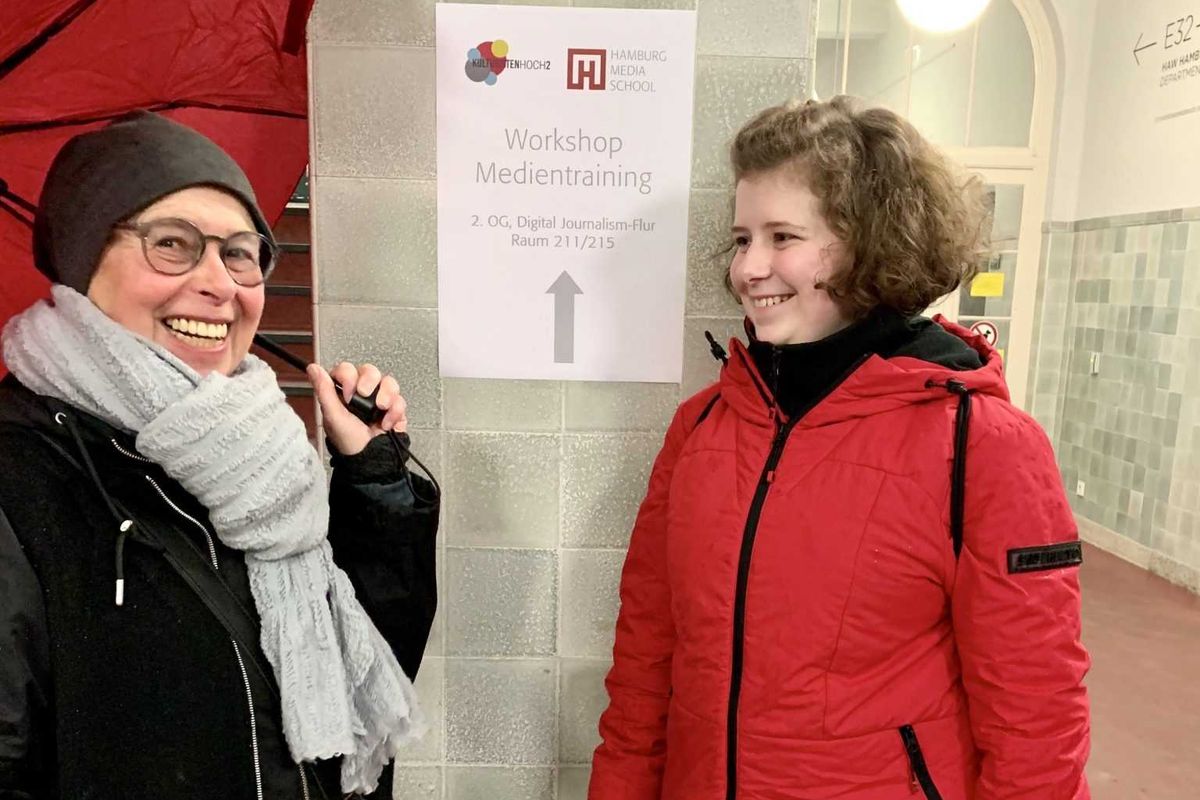We are being lured by the siren song of cynicism. We have to choose a different route.

We can't let ourselves be lured by the siren song of cynicism.
"Why do people have to suck so badly?" my teen asks me after watching a viral video of horrible human behavior.
I understand the sentiment. I really do. I've asked myself the same question many times in recent years. Why are people like this? What is wrong with people? How can people be so stupid/cruel/selfish/ignorant/etc. And every time I have to pause, reflect and recognize what I'm hearing.
It's the siren song of cynicism. That strangely alluring voice that lulls us into a negative state of complacency at best and abject nihilism at worst.
I see—and feel in myself—cynicism as a natural, reactionary response to the ugly realities of our world, but also to our current digital climate. So much of the discouse we consume is filtered through social media algorithms that reward undernuanced hot takes and keep the cycle of negative sensationalism churning. The bad stuff gets our attention, which prompts people to talk about the bad stuff, which triggers algorithms that push more of the bad stuff, which creates a feedback loop informing us that everything is terrible.
Cynicism seduces us because it's easy. It doesn't actually feel good, but it feels comfortable because it doesn't ask anything from us. Hardened cynics sometimes see themselves as the intellectually honest among us, having real insight into people and problems, but it's simply not true. Cynicism requires no deep digging, real reflection or soul searching. It's the easiest thing in the world to call the world a dumpster fire, toss up our hands and say, "Welp, everything and everyone sucks, so what's the point?"
Hope, on the other hand, is hard. It requires going beyond our impulsive reactions to headlines and soundbites and to enage with humanity holistically. Far from being some kind of unthinking, Pollyanna-ish, head-in-the-sand idealism, I see hope as the natural outcome of truly diving into the reality of human existence.
But how do we get there? How do we ignore the pull of cynicism and navigate toward hope instead?
First, we can look to the past to see how far we have actually come.
I was watching the Olympics the other night and marveling at what human beings have figured out how to do. We started off rubbing sticks together to make fire. Now we have people who can artistically dance around on ice, spin multiple times through the air with the utmost perfection and precision, and land on one foot on a 1/8-inch blade. Not only that, but they do it to beautiful music that humans have composed, with musical instruments humans created, recorded on technological equipment that humans invented.
Not only was I watching this marvel happen, but I was doing so all the way on the other side of the planet, in the comfort of my home, where hot air blows out of the walls, clean water pours out of the refrigerator that keeps our food cold and lights turn on and off with the flick of a finger.
And that's just the basic, everyday life stuff we've figured out. Thinking of all of the ways humans continue to advance and progress is mind-boggling.
Sure, we still separate ourselves into artificial groups and fight over stupid things, but we also have created global organizations that collaborate to do incredible work to solve problems. Yes, our advancements have caused an imbalance in our relationship to the planet, but we also have developed the science to understand and begin to mitigate those impacts. Indeed, people can still be bafflingly ignorant or closed-minded, but we have access to everything that humans have ever learned available at our fingertips. That's incredible.
Our material progress may have outpaced our collective spiritual progress, and our political will to enact workable solutions might be a mess, but there's no reason to believe we won't figure those things out too. Look at all that we've been through and what we've accomplished. We are far more capable than we give ourselves credit for, in all areas.
Second, we can choose the filters with which we view the present.
When we look at the challenges we face and the difficulties in meeting those challenges, do we see a sign that humans are inept or a sign that we're trying to figure things out? Learning and problem-solving are messy, nonlinear processes. Sometimes progress is two steps forward, one step back. Growth involves growing pains, especially when we're actually growing the fastest. Building something new often requires tearing down something old first, and destruction feels like destruction even when it's necessary.
There's also the simple truth that we find what we look for. If we look for what is bad, wrong and unjust in the world, we'll find it. That stuff is there, no question. And some of it definitely needs our attention; ignoring a problem doesn't make it go away. But focusing on the negative all the time is a choice—one that doesn't serve anyone well.
I could easily spend an entire day finding examples of how people are awful, how it seems like we're going backward in some ways, how society is totally messed up and how the future is doomed. (Just spend the day on Twitter. It's all there.) If my goal were to justify a cynical outlook on humanity, I could easily do so.
But I could also spend an entire day finding examples of how humans are amazing, how people come together to help one another, how organizations are solving problems and providing for people's needs, how progress is being made in all fields of human endeavor. If my goal were to justify a hopeful vision for humanity, I could easily do that as well.
Each of those scenarios is a choice. Which day seems like it would lead to a better outcome, either for me personally or for the world at large?
The negative, cynical stuff is constantly in our faces because of how media and social media work, but the positive, constructive stuff is all around us. We need to balance positivity with addressing real problems, but when we put more focus and energy into supporting and amplifying the things we want to see than the things we don't, we steer our ship toward hope.
Finally, we can remember that the future is still unwritten.
One of the hallmarks of cynicism is the sense that nothing changes, that we're going to be stuck in the same stupidity of our own making forever. But none of us has a crystal ball. We don't know what the future holds and how humanity will change through the inevitable ups and downs on the horizon. We couldn't have predicted we'd be here now three years ago, and we don't know what things will look like three years from now.
We can choose to envision a dystopian future—there are plenty of books and movies we can use for inspiration if that's what we want to do. Or we can choose to envision something better or greater than what we have now. Neither is guaranteed in any way, so we do have a choice in the matter.
Any psychologist will tell you that visualization can be a powerful and transformative tool. Just as we see what we look for in the present, we are more likely to create what we envision for the future. That's not to say that we can control everything, but we can decide what direction we try to encourage humanity to go with our lives. When we look forward to a future in which humanity and our planetary home thrive and flourish, we're much more likely to seek out ways to move us in that direction.
Hope is a choice we make daily, in our thoughts and in our actions. Cynicism can sing to us all it wants, but we will hold the wheel steady, look for the light on the horizon and steer that direction instead.
- Millions of refugees live in limbo. Here's one initiative offering hope ... ›
- People on Twitter are sharing what gives them hope in 2020, and it's ... ›
- An expert shares how to reclaim hope. Yes, even after these past ... ›
- How to know if someone is selfish - Upworthy ›
- Here's the relationship mindset that's built to last. - Upworthy ›
- How to be more hopeful and optimistic about the future - Upworthy ›



 A UPS truck with package deliveries.Image via Wikipedia
A UPS truck with package deliveries.Image via Wikipedia
 Cher was the biggest phenomenon on the planet for the better part of the '70s and '80s.Casblanca Records/
Cher was the biggest phenomenon on the planet for the better part of the '70s and '80s.Casblanca Records/

 A high school volunteer with her senior "tandem."
A high school volunteer with her senior "tandem."  KH2 makes leaving the house more accessible to senior citizens.
KH2 makes leaving the house more accessible to senior citizens.  Many "culture buddies" stay in contact after the program ends.
Many "culture buddies" stay in contact after the program ends.  KH2 provides students with excellent life skills and lasting connections.
KH2 provides students with excellent life skills and lasting connections. 
 Parents posing with their young kids on a basketball court. via
Parents posing with their young kids on a basketball court. via